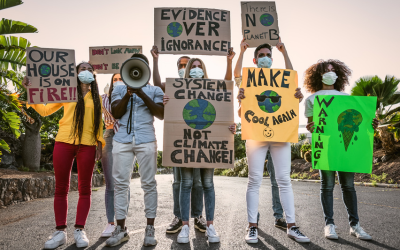Law 25: The Future of Law with Learned Past Experience

In putting together a strong outlook on ‘where do you see the law in 25 years’; it was important for me to view the last quarter-century to look at what improvements need to be made in the legal frameworks and landscapes of criminal, employment and environmental law in order to examine the three areas independent.
Criminal Law
In the last 25 years societal changes, technological advancements and a more thorough understanding of human rights issue from all areas of the globe has seen criminal law evolve. Having worked for a cyber security consultancy recently I have learned that digital technologies bring a legal minefield that it encompasses more and more cyber-criminal activities and online offences by individuals and consortiums.
Artificial intelligence (AI) and further machine learning within criminal investigations is potentially going to disrupt the landscape in the future. By looking at Predictive Policing; Bio Metric Data Usage; and highly expected advancements and breakthroughs in forensic tech will unquestionably facilitate investigations and eliminate human error, but it may also bring ethical concerns. In the future striking the best balance for privacy safeguards and technology innovation will be one of the challenges faced in the legal profession.
As cybercrime is currently a global issue I can see that all countries will work together in building legal frameworks that are synchronised, so a standardised and succinct approach is made to cybercrimes in the UK and all over the world.
Employment Law
If we now look at employment law, the past 25 years has seen the growth of employee rights, diversity, and the ‘gig worker’ economy. The rise of remote work, which was accelerated by COVID-19, has brought on new challenges and opportunities for employment law landscape.
As we look ahead to the future, the concept of work and employment may undergo a fundamental transformation. Flexible work arrangements, the gig economy, and the increased use of automation could redefine traditional employment relationships. The legal framework must adapt to protect workers' rights in a constantly evolving landscape, ensuring fair treatment and benefits.
Again, as with Criminal Law the role of AI in the workplace will introduce complex legal questions - From algorithmic bias – for example the bias could favour one demographic group over another in decision-making processes related to hiring, lending, or law enforcement. If historical data is used to educate the algorithm, then they may contain some biased patterns and may favour those biases.
Environmental Law
Today I feel there is a need in seeing an urgency within the subject of climate change which is ever increasing. Environmental law is changing and adapting to reflect new sustainable measures and the protection of endangered ecosystems in the UK and in other countries.
The environmental legal framework could look upon large UK businesses and organisations as causing environmental harm and climate-induced migration. In relation to this, we are seeing an emergence of environmental protest groups the in UK, for example, the group; Extinction Rebellion (XR), the group uses civil disobedience and immediate direct action to highlight the cause they are representing with the aim of going viral on social media and to be picked up on the news. Arrests for civil disobedience and disruption of public order will increase and issues like the right to protest, freedom of assembly, and trespassing will be at the top of the agenda.
In the next 25 years we may also witness a heightened emphasis on environmental justice, ensuring that vulnerable communities are not disproportionately affected by environmental degradation.
By reflecting on the past 25 years; as we look to the next 25 years, it is clear that legal education and practice must transform itself to equip future legal professionals with interdisciplinary skills.
Understanding emerging technologies, economic shifts, and societal dynamics will be essential for navigating the complex and changing legal landscape.
The legal profession itself may undergo transformative changes. The rise of legal tech, alternative dispute resolution mechanisms, and the increasing demand for diversity and inclusion within legal practices signal a shift toward a more dynamic and inclusive legal ecosystem.
So, to conclude my thoughts, the future of English law requires an understanding of what has happened in the past and present to embrace the opportunities that lie ahead. Overall, I feel that the next 25 years hold the promise of a legal landscape that is adaptive, equitable, and responsive to the evolving needs of society. As I embark on my legal education, I am excited to contribute to and be shaped by the unfolding narrative of English law with my studies at the Open University.

Author Biography
Ashley Mackie is a marketing professional, journalist, published author, devoted mental health advocate, and, above all, a proud mother of a two-year-old daughter.
Her career began at Oxford University Press, where she played a played role in shaping the marketing strategies for renowned law publications that are used in law practices all over the country. Working on well-known legal publications such as Blackstone's Criminal and Civil Practice, as well as the Blackstone's Police Manuals.
Following her tenure at Oxford University Press she moved to Wiley, where she worked on the now highly bestselling "For Dummies" books. Here, she was able to bring her expertise to a diverse range of subjects, translate complex information into accessible and engaging content.
Ashley is also a Trustee for a local mental health charity, and has a real dedication to mental health understanding and her objective is to amplifying awareness, support, and destigmatization of mental health issues.
As a mother, Ashley considers parenthood her proudest achievement. Balancing the demands of a career with the joys and challenges of motherhood, she exemplifies resilience and the pursuit of personal and professional fulfilment. She wants more than anything for her little girl to be proud of her and her main goal is to ensure that her daughter knows that she has the ability to make a real difference.